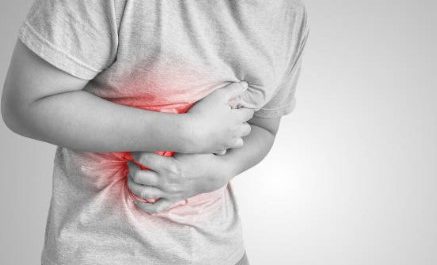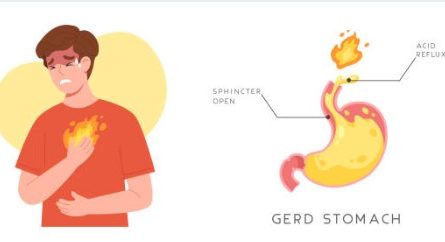When it comes to acid reflux and gas, there are several over-the-counter medications available that can provide relief. However, it’s always best to consult with a healthcare professional for an accurate diagnosis and appropriate treatment. They can assess your specific situation and recommend the most suitable medication for you.
Here are a few common types of medications that are often used to treat acid reflux and gas:
Antacids
These medications work by neutralizing stomach acid. They can provide quick relief for occasional or mild symptoms. Examples include Tums, Maalox, and Mylanta.
H2 blockers
These medications reduce the production of stomach acid. They may take a bit longer to provide relief, but their effects can last for a longer duration. Examples include ranitidine (Zantac) and famotidine (Pepcid).
Proton pump inhibitors (PPIs)
These medications also decrease the production of stomach acid but are typically more potent than H2 blockers. They are often recommended for more severe or chronic cases. Examples include omeprazole (Prilosec) and esomeprazole (Nexium).
It’s important to note that while these medications can help alleviate symptoms, they do not address the underlying causes of acid reflux or gas. Lifestyle modifications, such as dietary changes, weight management, and avoiding trigger foods, can also play a crucial role in managing these conditions. Again, it’s best to consult with a healthcare professional to determine the most appropriate treatment plan for your specific needs.
What is Acid Reflux?
Acid reflux, also known as gastroesophageal reflux disease (GERD), is a condition where stomach acid and other stomach contents flow back up into the esophagus. The esophagus is the tube that connects the throat to the stomach. Normally, a muscular ring called the lower esophageal sphincter (LES) located at the junction of the esophagus and the stomach prevents the backward flow of stomach acid into the esophagus. However, when this sphincter weakens or relaxes abnormally, it can allow stomach acid to reflux into the esophagus, leading to various symptoms.
Common symptoms of acid reflux include:
Heartburn – A burning sensation or discomfort in the chest, often after eating or when lying down.
Regurgitation – Sour or bitter taste in the mouth as stomach acid flows up into the throat.
Difficulty swallowing – A sensation of food getting stuck in the throat or chest.
Chest pain – Sometimes acid reflux can cause chest pain that resembles a heart attack. If you experience severe chest pain, it’s important to seek medical attention immediately.
Certain factors can contribute to the development of acid reflux, including:
Weak lower esophageal sphincter (LES)
The LES may naturally be weak or relax more frequently in some individuals.
Hiatal hernia
A condition where a portion of the stomach pushes up into the chest through the diaphragm, which can weaken the LES.
Diet and lifestyle
Consuming large meals, fatty or spicy foods, caffeine, alcohol, or smoking can increase the risk of acid reflux.
Obesity
Excess weight can put pressure on the stomach and promote acid reflux.
Pregnancy
Hormonal changes during pregnancy can relax the LES, leading to acid reflux symptoms.
Treatment for acid reflux may involve lifestyle modifications, such as dietary changes, weight management, and avoiding trigger foods. Additionally, medications like antacids, H2 blockers, and proton pump inhibitors (PPIs) may be prescribed to reduce stomach acid production or neutralize acid. In some cases, surgical interventions may be considered for severe or persistent acid reflux that does not respond to other treatments.
If you suspect you have acid reflux or are experiencing persistent symptoms, it’s important to consult with a healthcare professional for an accurate diagnosis and appropriate treatment plan.
How to avoid acid reflux
To help avoid acid reflux and reduce its symptoms, you can try incorporating the following lifestyle modifications:
1. Maintain a healthy weight
Excess weight can put pressure on the abdomen, pushing stomach acid up into the esophagus. If you are overweight, losing weight through a balanced diet and regular exercise can help alleviate symptoms.
Eat smaller, more frequent meals: Instead of large meals, opt for smaller portions and spread your meals throughout the day. Eating smaller meals can reduce the amount of acid produced and help prevent reflux.
2. Avoid trigger foods and drinks
Certain foods and beverages can trigger acid reflux symptoms. Common triggers include spicy or fatty foods, citrus fruits, tomatoes, chocolate, caffeine, alcohol, and carbonated drinks. Identify your personal triggers and try to avoid or limit their consumption.
3. Modify your eating habits
Eat slowly, chew your food thoroughly, and avoid lying down or going to bed immediately after a meal. Give your stomach time to digest before lying down to prevent acid reflux.
4. Elevate the head of your bed
Raising the head of your bed by 6 to 8 inches (about 15 to 20 centimeters) can help gravity keep stomach acid from refluxing into the esophagus while you sleep.
5. Avoid tight-fitting clothing
Tight clothing, particularly around the abdomen, can put pressure on the stomach and promote acid reflux. Opt for loose-fitting and comfortable clothing.
6. Quit smoking
Smoking can weaken the lower esophageal sphincter and increase the production of stomach acid. Quitting smoking can have numerous health benefits, including reducing acid reflux symptoms.
7. Manage stress
Stress and anxiety can worsen acid reflux symptoms. Practice stress-management techniques such as exercise, meditation, deep breathing exercises, or engaging in activities you enjoy.
8. Stay upright after eating
Avoid lying down or reclining immediately after a meal. Stay in an upright position for at least 2 to 3 hours after eating to allow gravity to help keep stomach acid down.
9. Consider over-the-counter medications
Antacids, H2 blockers, or PPIs (proton pump inhibitors) can provide temporary relief from acid reflux symptoms. However, it’s important to consult with a healthcare professional before using any medication for an extended period.
It’s worth noting that these lifestyle modifications may help alleviate mild acid reflux symptoms, but they may not be sufficient for severe or chronic cases. If your symptoms persist or worsen despite these changes, it’s advisable to seek medical advice from a healthcare professional for a proper diagnosis and treatment plan.







